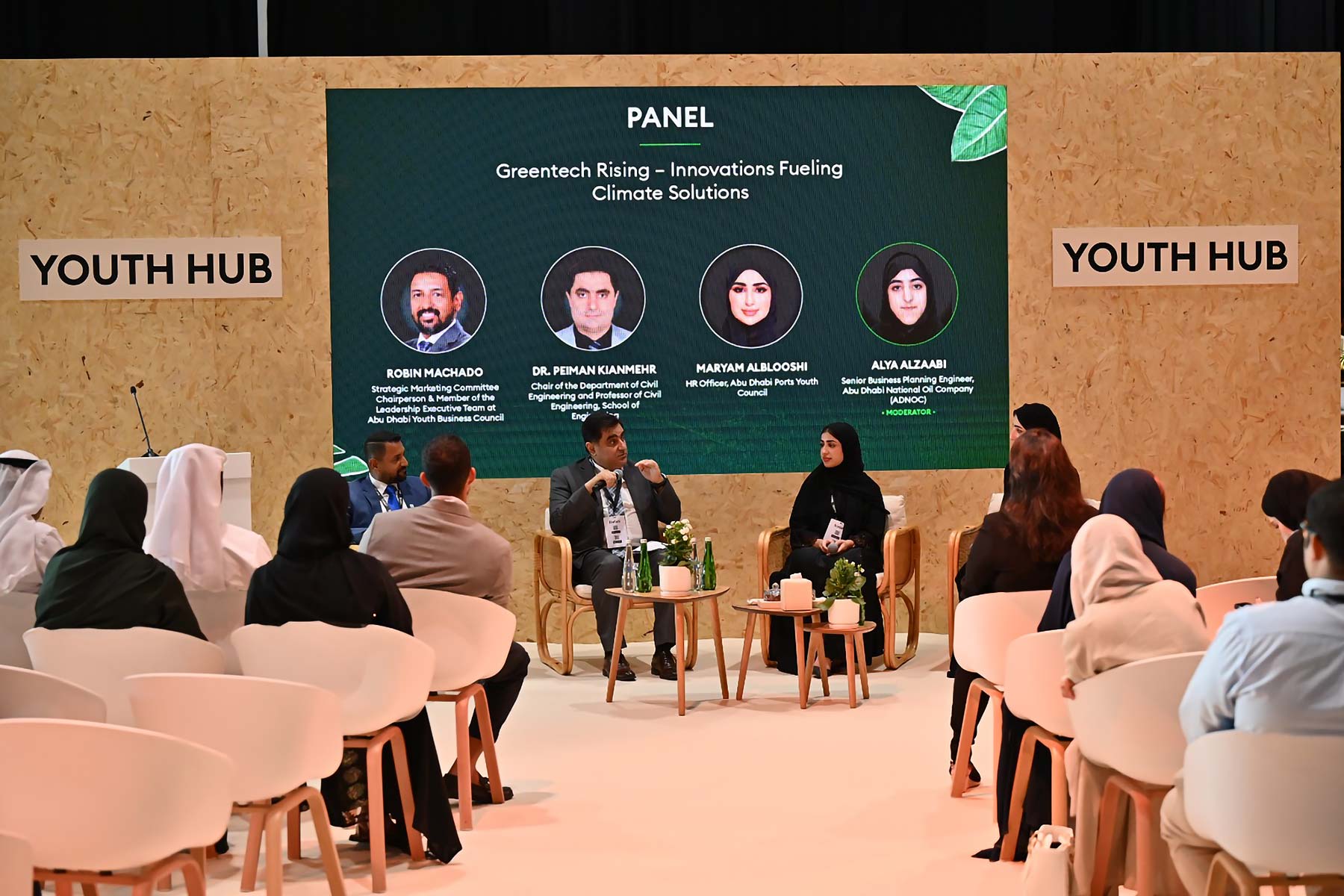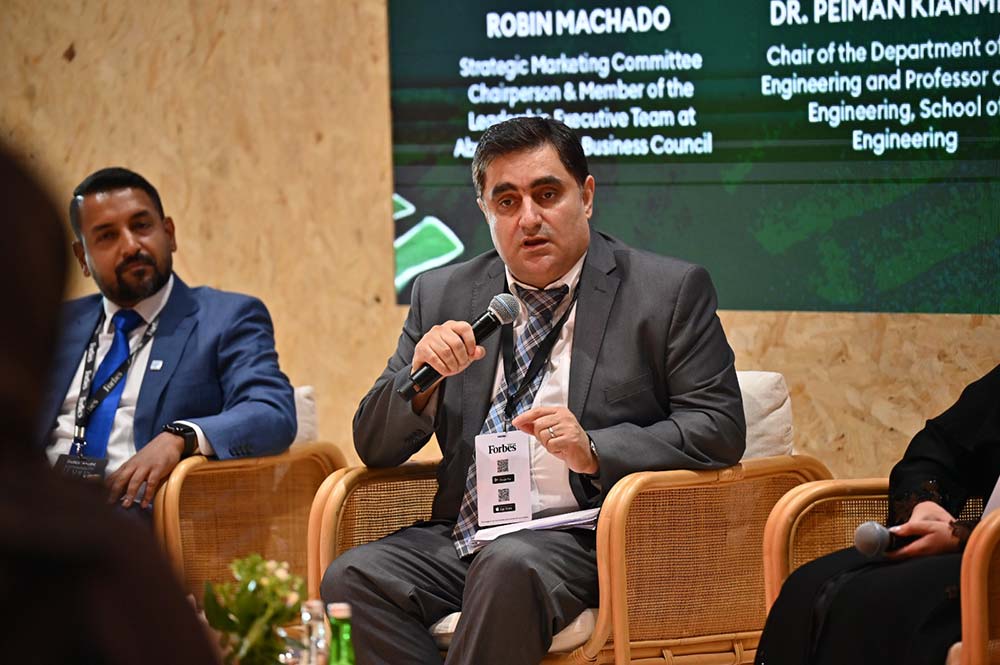
The American University in Dubai (AUD) showcased student-led research at the Forbes Middle East Sustainability Leaders’ Summit 2025, held in Abu Dhabi on October 15, 2025. The summit’s panel discussion, “Greentech Rising – Innovations Fueling Climate Solutions,” explored how the next generation of engineers and innovators is leveraging technology to tackle pressing climate challenges across the region.
Representing AUD, Dr. Peiman Kianmehr, Professor and Chair of the Civil Engineering Department, presented two notable student-driven projects focused on sustainable construction and climate resilience in the UAE.

The first project presented by AUD supported the UAE’s energy sustainability goals by targeting reduced electricity consumption in buildings, which account for about 65% of the nation’s total use, nearly 70% of which is for air conditioning.
With solar power currently providing 9% of the country’s electricity and a target of 50% by 2050, the research emphasized the need for innovative, climate-appropriate cooling solutions.
To address this, AUD’s Civil Engineering Department explored shallow horizontal geothermal cooling, a method that channels ambient air underground to naturally lower its temperature before it circulates indoors. The system achieved an average temperature drop of 8°C, delivering measurable energy savings. It can be installed for around AED 10,000 in a typical villa, with a payback period of under two years, energy savings of approximately 4 kWh, and a reduction of 1.7 kg of CO₂ emissions per hour.
The second project examined climate resilience in coastal construction, a growing concern for cities like Dubai facing the risks of rising sea levels. With projections suggesting an increase of up to one meter by 2100, AUD researchers investigated adaptive engineering techniques to protect coastal infrastructure and communities.

Their study evaluated practical solutions such as wave-breaking walls, land restoration, and foundation reinforcement across approximately 150 coastal properties in Dubai. Findings showed that these interventions are both technically feasible and economically viable, costing around USD 50 per square meter, or just 2% of land value. This investment represents only 0.5% of Dubai’s GDP and about 5% of the construction sector’s annual revenue, underscoring that climate resilience is both achievable and cost-effective.
Dr. Kianmehr’s presentation drew strong interest from delegates keen to explore AUD’s sustainability research, as he directed them to the AUD Library for full research access and announced that further student-led studies on sustainability and construction innovation will be published soon.